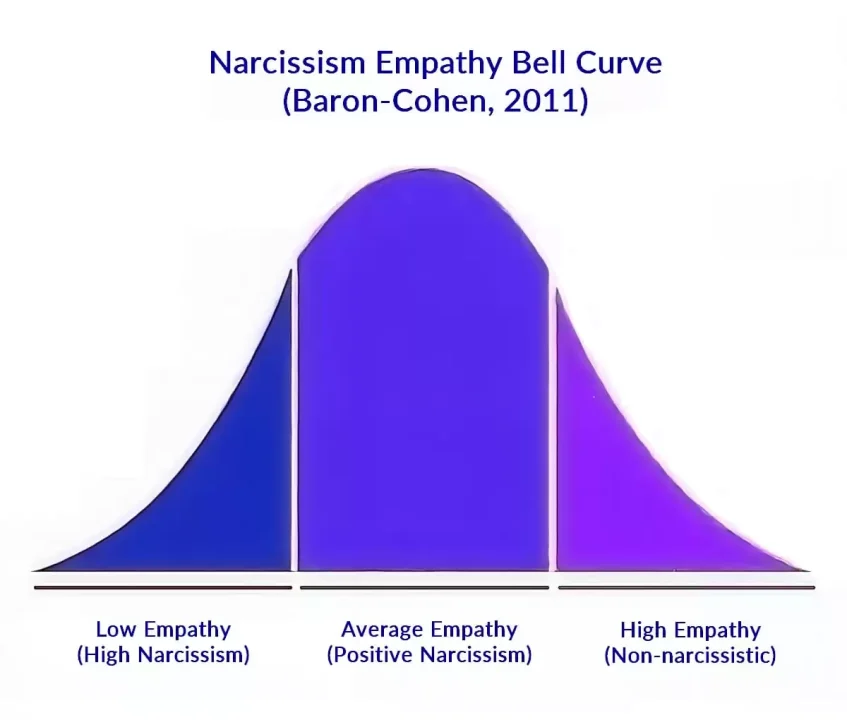Today's Saturday • 15 mins read
— By Dr. Sandip Roy.
Covert narcissists reveal themselves in whispers, not shouts.
You sense something off about them, even after years together. The relationship feels valuable, but some of the things they do make no sense.
Their strange behaviors follow patterns, like making you pity them to get you to do what they want, annoying you purposely, and getting you to react over small things. Of course, they rarely say “Sorry.”
A persistent unease follows you in their presence. And your responses around them seem foreign to your normal self.
Two of their personality quirks, which are more like hallmarks of covert narcissism, are their:
- Passive-hostile behavior: to undermine your voice and concerns
- Selective empathy: that appears only when you explicitly ask for
7 Weird Things Covert Narcissists Do
These seven unusual and strange behaviors expose the covert narcissist:
1. They Stubbornly Avoid Doing Things You Request of Them.
Covert narcissists are ready with a million excuses when you ask them to do something for you.
- They can come across as mentally fatigued, over-busy, or deeply troubled by their issues.
- They may tell you “complying with your demands” makes them feel like a slave or a servant in your relationship.
- They can say your reactions hurt them after their unintentional and trivial “mistakes,” and now they want to avoid it.
But the real reason is: No responsibility → No chance to mess up → No owning the blame.
If you demand that they do the job, they might give in and do it, but they will do it badly and late.
2. They Lie Without Reason, Giving Fake Apologies When Caught.
Covert narcissists are pathological liars. They can lie for no reason.
Often, they lie about almost everything about themselves, to hide what is going on in their minds, or to lead you up a false path.
Examples:
- They can tell you a colleague, friend, or family took a loan from them and is not paying back. In truth, that person might have never borrowed anything from the narcissist.
- They can say one of your friends is gossiping about you, but you can’t ask them for details. So that you alienate yourself from them, and see your narcissist as the only person worth being with.
- They can tell you that they had a dream in which you were waving a whip over sad-looking dogs that had learned to be helpless. Then say, “I wonder why I had that dream?”

3. They Mutter Criticisms Just Loud Enough For You To Hear
Your covert narcissist will mutter things in a low voice, but make sure you can hear them.
They’ll sigh audibly and mumble comments at a volume and tone so you barely catch the words.
When you ask, “What did you say?” they respond with a dismissive “Nothing.” The denial comes quickly, practiced. Nothing about this is accidental.
These mutterings serve a purpose: Whispered criticisms deliver their assaults while letting them evade accountability and maintain deniability.
They want the barbs to land without having to defend them.
Challenge them directly about what they said, and watch their tactics shift. Suddenly, they were talking about someone else entirely—typically, a convenient scapegoat from their past.
They’ll express shock that you thought it was about you. “Why would you think that it was about you? So sensitive.”
This “deflection” is narcissistic projection wrapped in gaslighting. They place their negative qualities onto you while making you question your perception.
If these maneuvers fail, they escalate to guilt-tripping or emotional withdrawal. Your comfort becomes the price for your defense.
- Read: What are the 10 worst problems of living with a narcissist?
4. They Will Patiently Gaslight You For Months & Years.
Gaslighting is when someone tricks you into questioning your own memories and perceptions. The goal is to keep you constantly confused.
When a covert narcissist has worked their way on you, you will be a highly confused person, always undecided about what to do next if the narcissist is not around.
They distort your understanding of yourself.
Read that again: They distort your understanding of yourself.
- They distort other people’s views of you. They spread a smear campaign about you behind your back so that people who you don’t even know look at you with suspicion.
- They may add strange details to their interpretations of your experiences, to make you think you’re wrong about someone or something.
- They downplay your present stand by reminding you that you took a contradictory stand in the past (which you may not have).
- If you catch their lies and threaten to leave them if they continue their always-on lying act, they will apologize to you. But these apologies are mostly fake.
Genuine apologies are based on a promise to change and never repeat the act. But narcissists say “sorry” mainly to defuse a stressful moment and keep you in the relationship. They don’t intend to change.

Covert narcissists also blame things back on you (which is gaslighting, again):
- They may explain their bad mistake by saying it was you who made them do that. As in, they were late because they had to call you, and you had so much to talk about.
- If you suspect them of cheating, they will flatly deny it and may even say you are hallucinating.
- If you caught them cheating, they may pin it on you, saying it was you who made them cheat on you.
- Stranger still, they can say that because you always suspected they were cheating, it turned out to be true, like a self-fulfilling prophecy.
5. They Are Self-Centered Even In Their Closest Relationships.
The covert narcissist will always take the bigger part of the pizza, unless they have an upset stomach.
They first consider how doing a thing will benefit them before it helps anyone else. For them, self-interest takes priority.
The “coverts” are so self-obsessed that they are hardly interested in others’ welfare. They mostly keep those people around who will say good things about them.
These people can deftly make you believe that they have been victimized and martyred by others. And this “justifies” their desperate need for validation and attention.
When you ask them to help with something as critical as accompanying you for a cancer screening report, they will tell you they are urgently needed elsewhere.
They will never recommend you to anyone, even when it’s a small favor for them, unless they know you will repay them for it.
If they are asked about their opinion of you, they will surely mention your negative and weaker sides. This is to show how they are gentle enough to “tolerate” your excesses, flaws, and negative habits.
6. They Hijack Your Conversations.
Covert narcissists are chronic interrupters and conversation killers.
They cut you off mid-sentence, every time. They don’t let you finish your talk or make your point.
You start sharing something important, and suddenly, they’re talking about themselves. Your story gets pushed into the background. It’s like, “I have better information to share than your trivial stories.”
When you speak with them one-on-one, they pounce on any pause. Your words exist only as bridges to their stories. Your experiences are just stepping stones to their superior ones.
They genuinely think their self-importance deserves center stage. Plus, the subliminal belief that they are always right puts an electric fence around their fragile ego.
Point this out, and they deny it and get cranky. Next time they do it, you’ll hesitate to cross them.
In groups, they use subtler tactics. When you receive attention, they roll their eyes. They smirk. They make undermining comments that redirect focus to themselves.
This isn’t just annoying behavior. It’s emotional abuse. They systematically deny your right to be heard.
When all else fails, they may silence you with, “Shh! Did you hear that?” forcing you to listen to nothing while they reclaim control.
7. They Have Mastered The Art of Passive-Aggression.
Passive hostile behavior is a type of indirect, concealed form of hostile behavior. It allows a person to express anger and related emotions without directly communicating these feelings. It is a common coping mechanism that many people use … when they want to avoid direct dispute. – Medical News Today
Covert narcissists hide their hostility behind a façade of politeness. They can fake “Oh, it hurts!” when they caused the hurt.
Their passive-hostile behavior arsenal includes sulking, avoidance, backhanded compliments, subtle sarcasm, strategic lateness, calculated silence, weaponized kindness, and weaponized incompetence.
They appear calm on the outside while seething within. Their sarcasm betrays their true feelings. Their argumentative nature reveals their negative state of mind.
They criticize you for imaginary faults of yours. Watch their faces, the eye rolls, the subtle grimaces, the looks of disgust when you speak.
They diminish you through plausible deniability. Make a cutting remark about your intelligence, then retreat with, “Can’t you take a joke?” when confronted.
They weaponize time against you. Make you wait for dinner. Respond to urgent texts hours later. Arrive late to events that matter to you. Each delay sends a message: their time matters more than yours.
Their compliments arrive with poison tips:
- “That dress looks amazing considering your body type.”
- “Your presentation went well for someone with your limited experience.”
Their passive-hostile behavior is calculated, not accidental.
Push them too hard, and the mask slips. Their passive-hostile behavior morphs into open hostility. They lash out, become paranoid, and turn aggressive. And then blame you for “making” them behave this way.
7 Weird Things Covert Narcissists Say
- “I have a lot to offer, even if it’s not obvious to everyone.”
Covert narcissists may downplay their qualities while still asserting their superiority. To imply that only those rare few can appreciate their unique gifts, setting themselves apart as misunderstood geniuses. - “You’re really fortunate to be a part of my world.”
Instead of overt boasting, covert narcissists present their involvement in your life as a special privilege. Suggesting that their presence is an honor you should cherish, even if they rarely acknowledge your contributions. - “You’re overreacting. I was only trying to help.”
They dismiss your emotional responses as drama or overreactions, downplaying your genuine concerns. This also reframes their behavior as benign or insightful. It’s all to deflect accountability for the impact of their actions. - “Maybe you just can’t see what makes me different.”
This response, again, deflects the message and assaults the messenger. By insinuating that your lack of insight is the real problem, they reinforce their belief in their own exceptional status. In short, your perspectives don’t matter. - “I prefer to handle things on my own. Intimacy just complicates matters.”
Claims of self-sufficiency let your covert narcissist frame their avoidance of closeness as a strength. Underneath, however, this can be a shield to avoid opening up their vulnerability. This also assures them that they don’t need to introspect their fears or flaws. - “Sometimes I feel like the only one who ever truly understands the pain in this world.”
This is a subtle way to assign themselves the role of the perpetual victim. It lets them evoke your sympathy and attention while avoiding taking responsibility for the distress they have caused you. - “I guess it’s hard to fully get who I am, but I wouldn’t have it any other way.”
This ambiguous statement puts a sense of mystery and uniqueness to their character (which you and others deem as weird). When others fail to understand or appreciate them, the covert narcissist employs this excuse both to justify distancing behaviors and to elevate their sense of being misunderstood, special individuals.
7 Strange Habits of Covert Narcissists!
- Obsessive grooming with a quiet edge: Covert narcissists might display an intense preoccupation with their appearance, investing significant time and effort in self-care. However, instead of overt flaunting, they usually polish their image quietly, using meticulous grooming to secure internal validation while maintaining an unassuming exterior.
- Seeking praise in whispers (but rarely giving it): Although they may not shout about their achievements, covert narcissists subtly fish for compliments. They crave acknowledgment and validation yet are reluctant to return that attention to others, carefully curating a persona that remains perpetually in need of admiration while appearing modest.
- One-upping through passive comparisons: Instead of overtly competing for the spotlight, covert narcissists tend to slip in backhanded comparisons or veiled one-upmanship when others share successes. They might engage in self-talk or murmured remarks that imply their experience was more profound or challenging, turning daily conversations into an understated contest where they expect to come out on top.
- Shifting blame with quiet indignation: Even when things go wrong, covert narcissists often redirect fault towards others, albeit in a less dramatic way. They may use a tone of quiet indignation to imply that external factors (or other people) are always responsible for mishaps, subtly avoiding personal responsibility by making others feel they should have foreseen or prevented the outcome.
- A soft-spoken sense of entitlement: While not always overtly demanding special treatment, covert narcissists carry an underlying belief that they deserve privileges. They may hint at their superiority or unique needs indirectly, expecting others to read between the lines and accord them a level of deference or care without having to explicitly ask.
- A hidden need for control: Covert narcissists might not take charge in an obvious, domineering way. Instead, they engage in subtle manipulations—planting ideas, using gentle persuasion, or casting doubt on others’ decisions. Their need for control shines through in the quiet insistence that things be done “their way,” while they often disguise their intentions behind a mask of concern or helpfulness.
- Empathy in short supply, disguised as introspection: Though they may appear thoughtful or deeply reflective, covert narcissists frequently lack genuine empathy for others. They might offer insightful remarks about their own experiences, while quickly dismissing or minimizing others’ feelings. This reflects an inner focus that prioritizes their own emotional needs and views without truly considering those around them.
4 Typical Behaviors of A Covert Narcissist
- People-pleasing at first: Covert narcissists often start a relationship by doing many small favors and kind acts. They try to win your attention, empathy, and devotion by being extra nice and attentive without demanding it directly.
- Playing the victim: They usually present themselves as misunderstood or hurt by others. By sharing personal hardships or saying things like, “I always feel mistreated,” they make you feel sympathy for them and want to help.
- Controlling you with subtle criticism: Instead of openly bossing you around, they use mildly critical comments to undermine your confidence. They can make offhand remarks about your choices or downplay your achievements, so you feel you must live up to their unseen standards.
- Pushing you to isolate yourself: Covert narcissists can suggest, sometimes very gently, that your family and friends don’t really care about you. They may imply that spending less time with others is better for you, which leads you to pull away and become more dependent on them.
Covert Narcissism & Empathy
- Covert narcissists have low, but enough empathy to stop them from acting out in grandiose ways or physical hostile behavior.
- Most people have an average level of empathy as default, and behave in ways that can be called positive narcissism.
- Only a few people come with extremely low empathy with high narcissism (such as malignant narcissists).
- Only a few have high empathy combined with no narcissistic traits (popularly called empaths).
According to the Narcissism and Empathy Bell Curve (Baron-Cohen, 2011), there is an inverse relationship between narcissistic traits and empathic ability.
- Low Empathy—High Narcissism: Individuals with high narcissistic characteristics often have a low capacity for empathy. They may struggle to understand or share the feelings of others in their social interactions and relationships.
- Average Empathy—Positive Narcissism: Individuals who might possess a balanced level of empathy may have some narcissistic qualities that are not squarely harmful to others. This suggests that not all aspects of narcissism are unhealthy and that in moderate levels, such traits can coincide with a healthy understanding and responsiveness to others’ emotional states.
- High Empathy—Non-narcissistic: Those with a high capacity for empathy often correlate with low levels of narcissism. These individuals are typically perceptive to the emotions of others and can prioritize the well-being of others, often pushing their own needs into the background.

Final Words
Three more weird things narcissists do:
- They prevent you from relaxing
- They are obsessed with dictators
- They can never give a genuine compliment
- It boosts their ego immeasurably when you view them as their only hero in your life.
√ Also Read: What Happens When Narcissists Are Emotionally Shattered?
√ Please spread the word if you found this helpful.
» You deserve happiness! Choosing therapy could be your best decision.
...
• Disclosure: Buying via our links earns us a small commission.